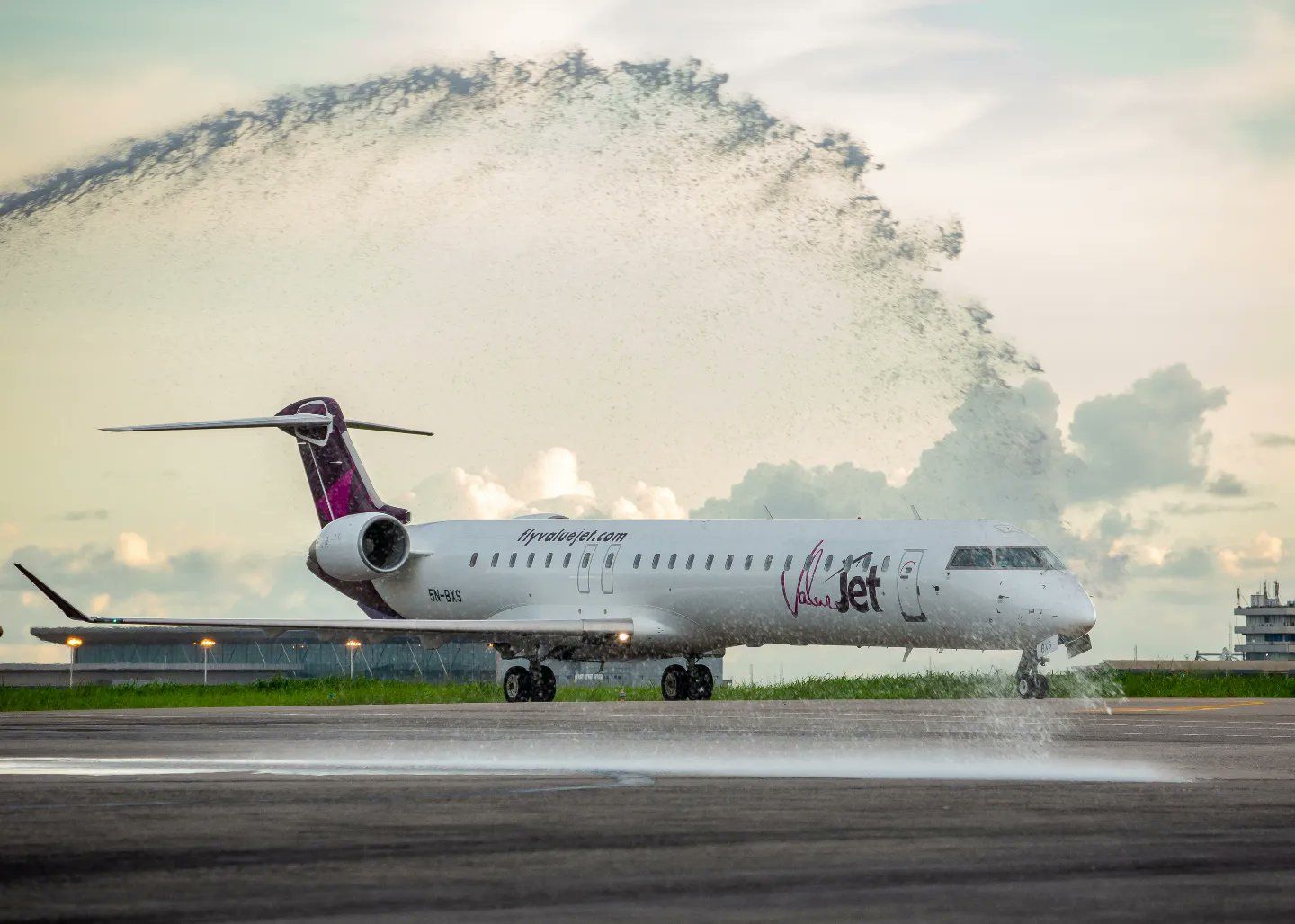Nigerian airline startup ValueJet has taken delivery of its first two aircraft. The two 15-year-old CRJ900 jets, 5N-BXS and 5N-BXT, previously served with Spanish regional carrier Air Nostrum before being ferried from Valencia via Tamanrasset to their new home at Lagos’ Murtala Muhammed International Airport earlier this week.
All new fleet
“This is one of the many defining steps in ValueJet’s anticipated milestones. Performance, safety, and comfort informed the choice of our aircraft selection,” ValueJet Managing Director Omololu Majekodunmi told local media. “With a track record of safety, ValueJet will deploy these aircraft for regional flight services once we have completed all mandatory processes and secured AOC approvals.”
A third long-range CRJ900 t leased from Lufthansa CityLine will join the fleet in the coming months.
The aircraft will remain in Lagos while the carrier prepares for the demonstration flights required for the Nigerian Civil Aviation Authority’s (NCAA) certification process. Post-launch, the airline will target cities across Nigeria, focusing on flights connecting Lagos, Abuja, Jos, Kano, Owerri, Benin, and Yola.
What about ValueJet?
Founded in 2018 as a virtual airline brokering flights through other airlines, ValueJet has been moving to establish itself as Nigeria’s newest low-cost carrier. While the launch comes at a difficult period for Nigeria’s aviation industry, airline bosses remain positive, boasting an optimistic outlook.
“Despite all the existing challenges in the industry, Nigeria and Africa are well poised to drive economic growth with an effective aviation sector,” added Majekodunmi. “ValueJet is a dream Airline that is gradually being positioned to efficiently facilitate growth opportunities across geographies.”
The carrier’s business model looks towards making aviation accessible to all Nigerian citizens through competitive pricing, firmly establishing itself alongside other local carriers. According to local media, a one-way flight from Lagos to Abuja costs around $227, almost twice the average monthly salary in the country.
“ValueJet’s vision is ambitious. We see a world where everybody can fly. Our aim is to add value from the very first flight once we are set for business operations,” noted the carrier’s Head of Business, Temitope Ajijola. “Currently, only about 5% of Nigeria’s population can afford a flight ticket, according to available statistics, and ValueJet is looking to increase this number significantly through creative fare pricing.”
Aviation in Nigeria
Nigeria’s aviation industry has recently struggled amid skyrocketing fuel prices which has left airports with limited fuel reserves on several occasions. Subsequently, airline unions have looked towards collective action; however, cooperative discussions earlier this month led to the government agreeing to subsidize aviation fuel until August.
The decision drew further criticism from Nigerian citizens who have accused the government of subsidizing travel for the elite instead of investing it back into road and rail transportation options. Through 2020 and 2021, the Nigerian government provided around $9 million to airlines hit by the pandemic.
What are your thoughts on Nigeria’s newest carrier? Let us know in the comments.
Sources: ch-aviation, TechEconomy.ng, Arise News

